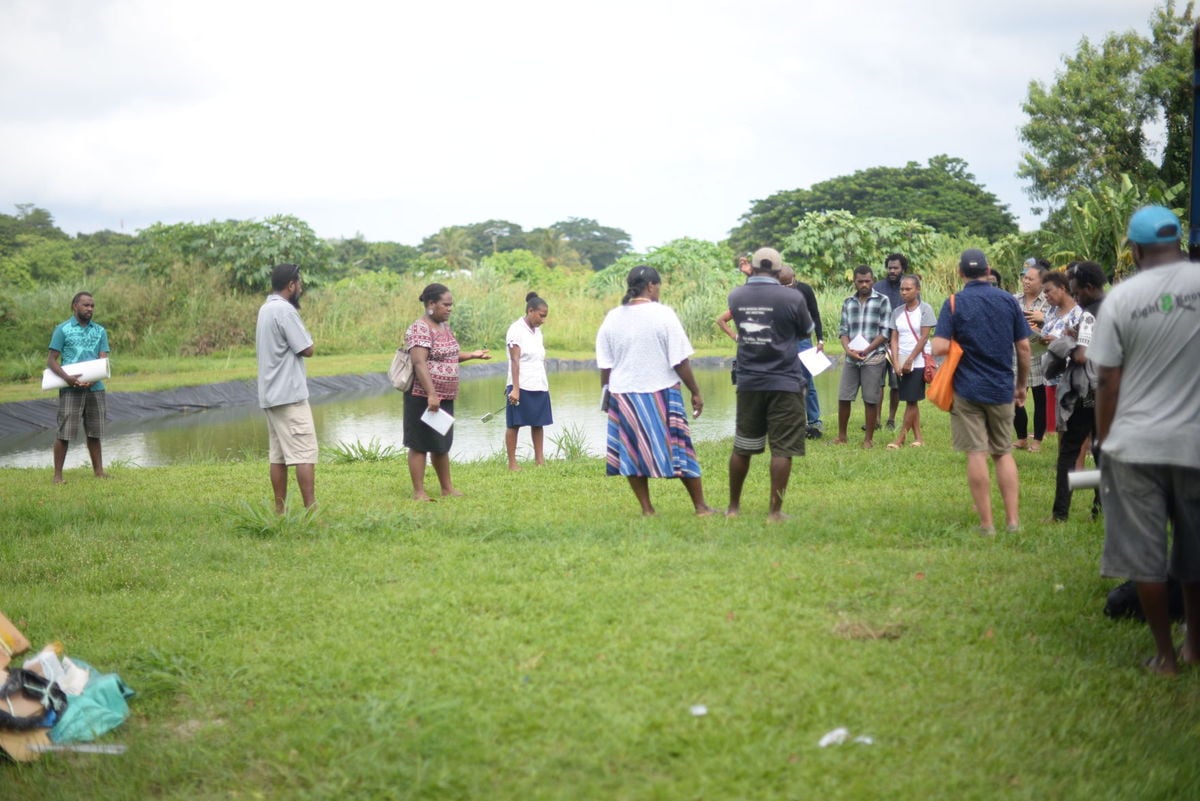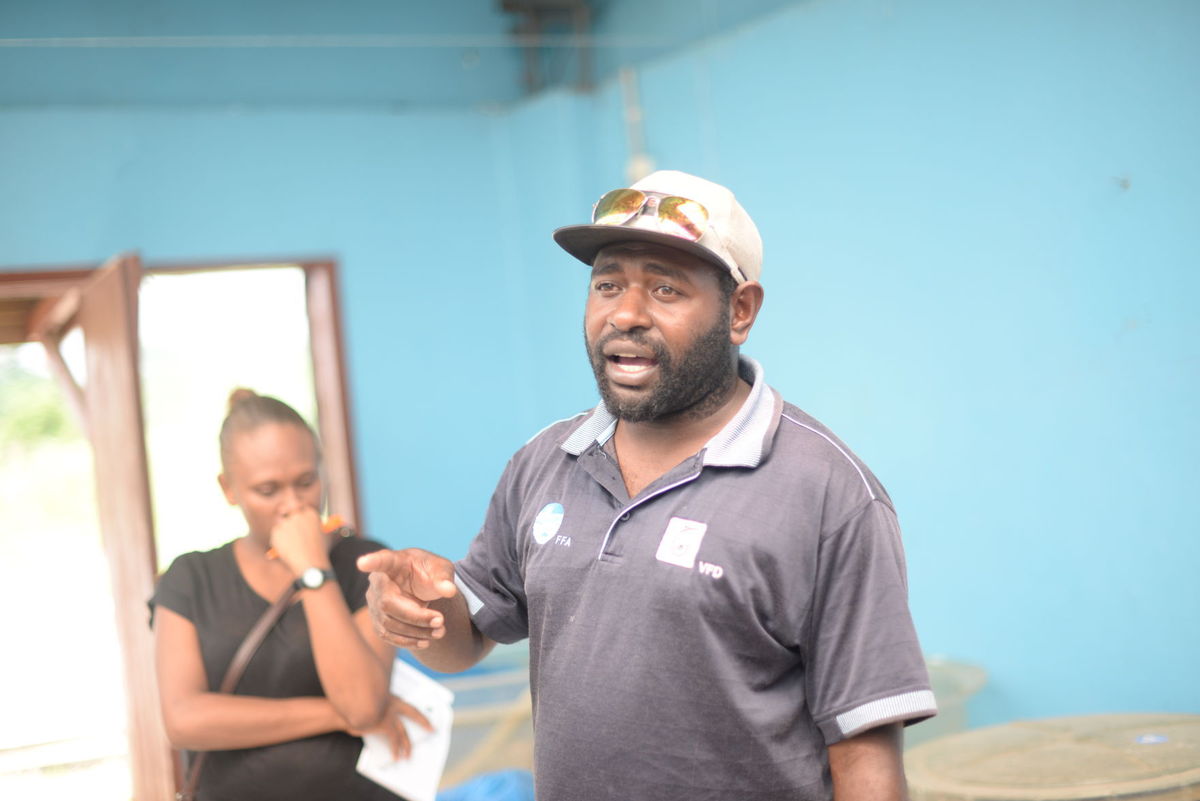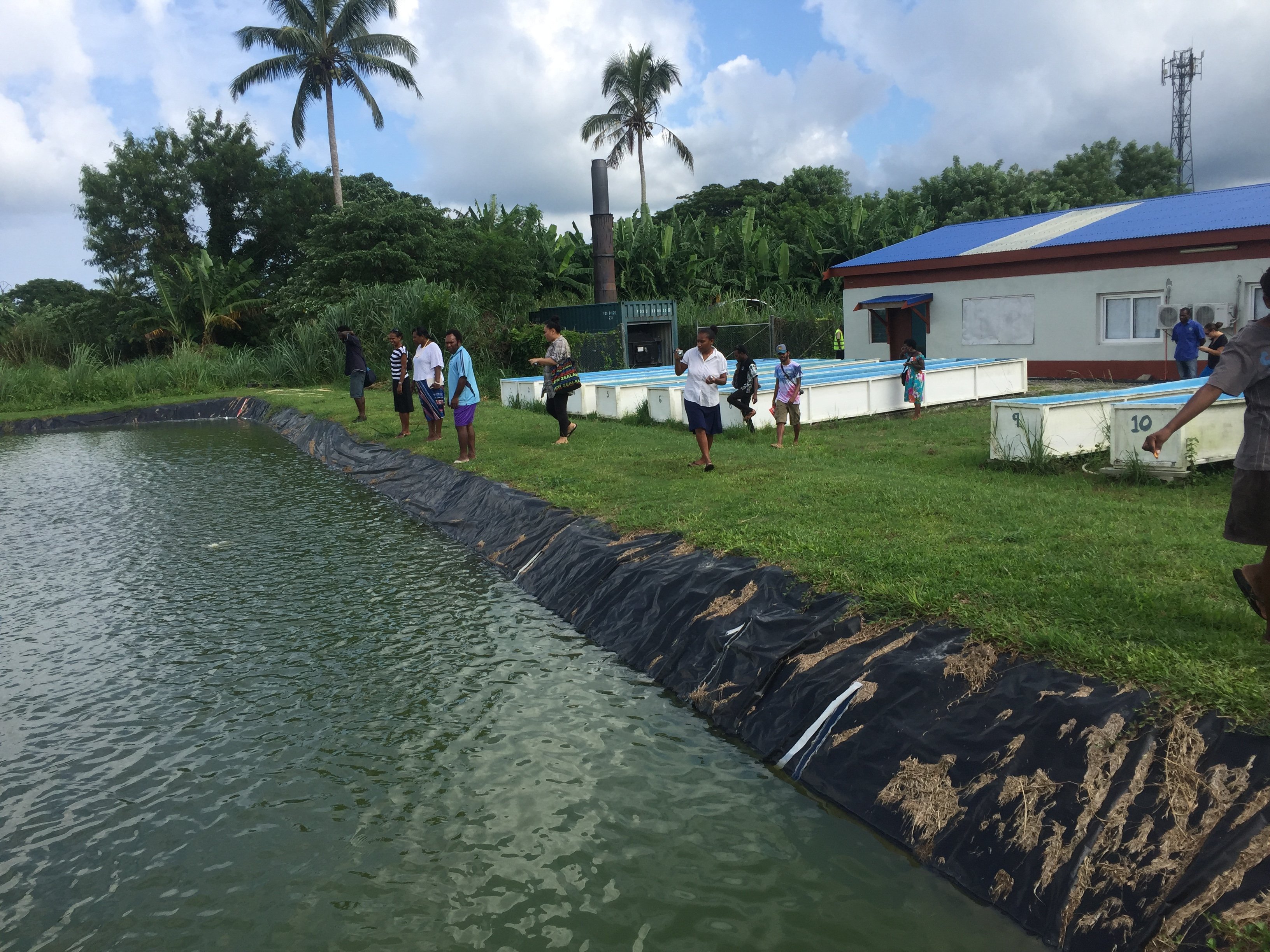The Department of Fisheries’ aquaculture centre at Tagabe in Port Vila made one of its best harvests of fresh water prawns last year and earned nearly Vt200,000 from the four months stock.
Aquaculture Officer, Andrew William, said their first harvest at the trial centre was in 2011, but last year was one of the best harvests conducted so far.
William told a group of visiting local journalists attending a climate change training workshop the harvest was made from their Tagabe centre where they have two pond sizes of 20×10 metres and where they harvested 120kg of prawns.
They sold the harvest at Vt1500/kg and it was all gone within half an hour.
“That’s a big demand ahead of us. At that rate you’re looking at around Vt180,000 that was earned from the harvest, which indicates a good return in terms of business for farmers and the communities after four months if they are keen to take up the venture,” he said.
He said this particular prawn species originated from Malaysia, which tried it out and they imported it from Fiji.
“It’s good for us also. Based on our studies when we brought in the prawns and did some trials here and we found that the growth rate here is better than the rest of the Pacific Islands.
“This is already proven because we have a very suitable climate for the prawn culture as the temperature all year round is the same, which is suitable for the prawn to grow and survive.”
Following the harvest of the prawns the two ponds were stocked with 7,000 tilapia fish that will be ready for harvest at the end of May.
William explained that the number of prawns and prawn sizes depend on the size of the ponds and the water quality “and if the water quality is good we can stock up to 10 prawns per square meter. And depending on our assessment if we find that the water quality is not good enough we can stock five or seven per square meter.”
For the tilapia, he said the fish can sustain a high temperature such as with our climate today tilapia can sustain more higher temperature such as in Papua New Guinea and Solomon Island, where tilapia can survive very well also.
The waste water from the ponds can be used by officers of the Agriculture Department to irrigate their nearby trial farms.




